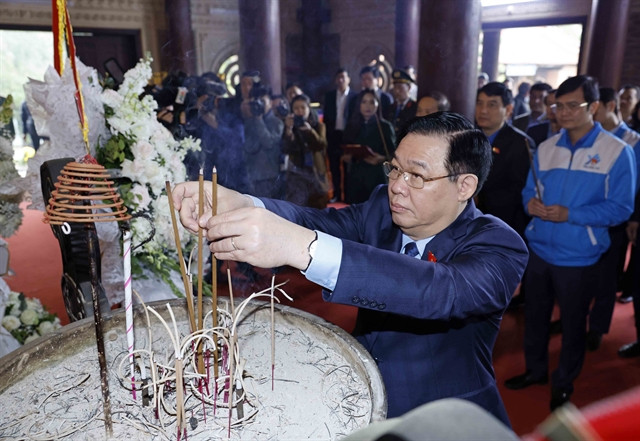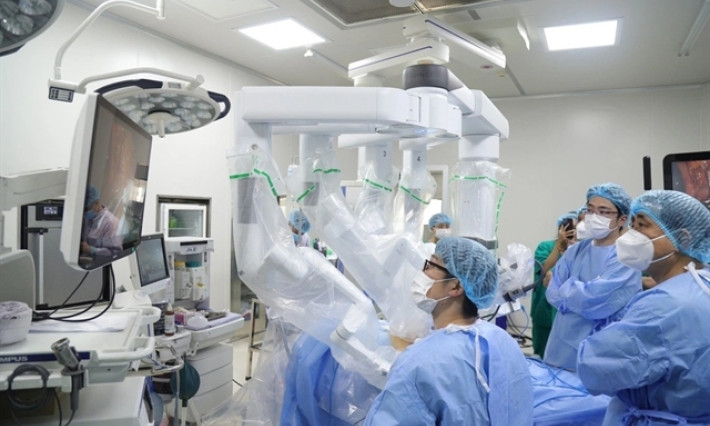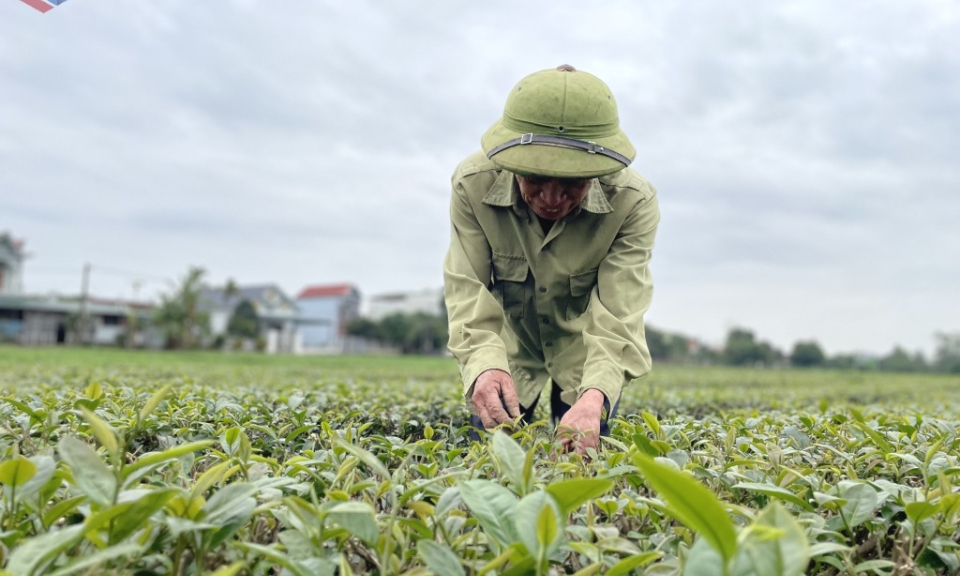Top legislator commemorates President Hồ Chí Minh, war martyrs in Nghệ An
Chairman of the National Assembly Vương Đình Huệ visits the special national relic site of Kim Liên in Kim Liên Town of Nam Đàn District – the hometown of President Hồ Chí Minh.
Chairman of the National Assembly Vương Đình Huệ and other officials paid tribute to President Hồ Chí Minh at the special national relic site of Kim Liên and to war martyrs at the national historical relic site of Truông Bồn in the central province of Nghệ An on Sunday.
At the special national relic site of Kim Liên in Kim Liên Town of Nam Đàn District – the hometown of President Hồ Chí Minh, the delegation offered incense to express their endless gratitude and profound respect to the late leader, who devoted his entire life to the struggle for national and class liberation, along with peace and happiness of the Vietnamese people.
The commemoration took place prior to the launch of the Youth Month and the tree planting festival 2024 held at the national historical relic site of Truông Bồn by the Hồ Chí Minh Communist Youth Union (HCYU) Central Committee.
During his life, President Hồ Chí Minh always reserved special sentiment and attention towards young people. He used the image of spring, the most beautiful season of a year, to describe the youth, and affirmed that the youth is the future master of the nation, whose strength and prosperity depend largely on the youth.
Following his teachings, the Party and State have always cared for the youth and the youth-related work. The HCYU has unceasingly reformed and effectively carried out revolutionary and youth action plans to contribute to national liberation, reunification, construction, and defence.
The same day, the delegation came to commemorate war heroes and martyrs at the national historical relic site of Truông Bồn and Mỹ Sơn Commune of Đô Lương District.
During the resistance war against the US, National Highway 15A, on which Truông Bồn is located, was a strategic place of special importance as it connected North - South transport arteries. Therefore, it was a target of the US’s bombings that aimed to block the routes for transporting human and material supplies from the North to the battlefield in the South.
As many as 1,240 officers and soldiers, including a number of pioneering youths, bravely fought and laid down their lives in this place.






